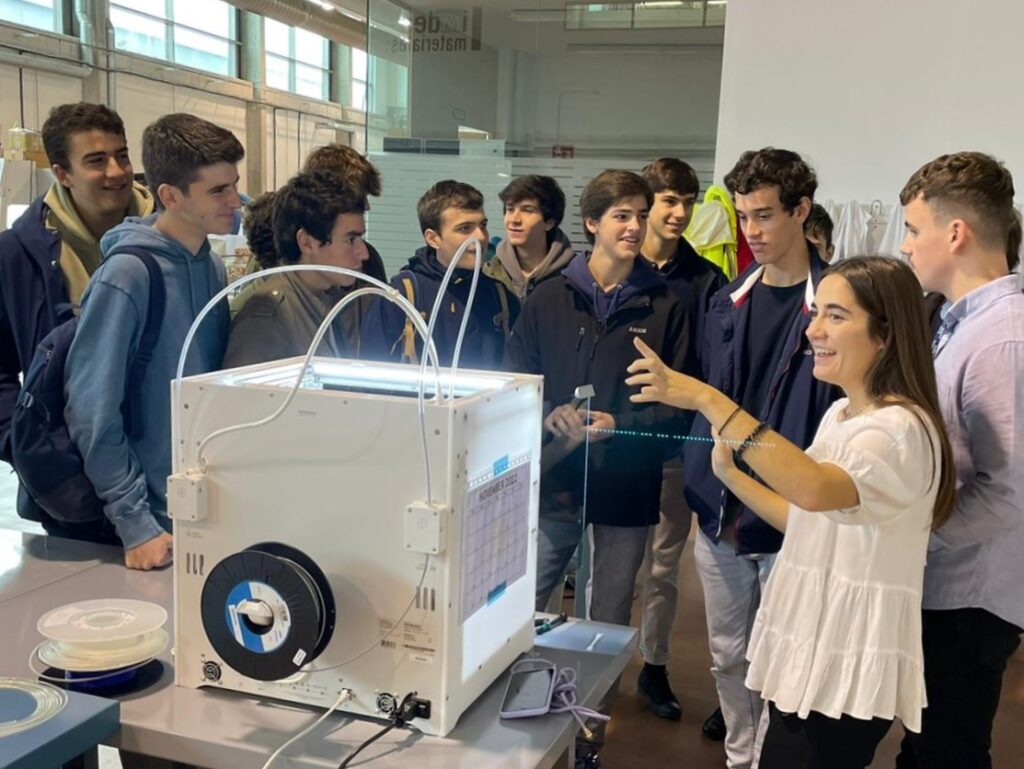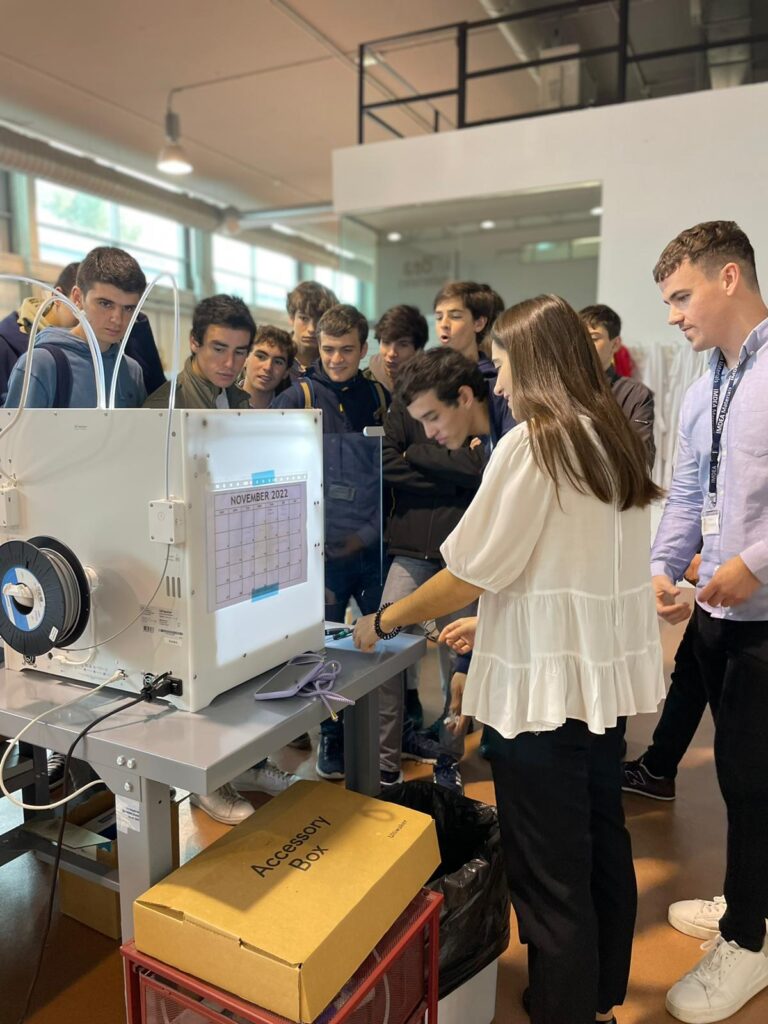IMDEA Materials Institute celebrated Science Week 2022 with a visit from students from Colegio Retamar in Madrid.
The BIOMET4D and BioImplant-ITN projects were a focus of the activities with predoctoral researchers Ángela Castro María from the Biomaterials and Regenerative Medicine group (Dr. Jennifer Patterson) and Cillian Thompson from the Bio/Chemo/Mechanics of Materials group (Prof. Javier LLorca) leading workshops on ‘Biomaterials for Tissue Engineering’ for the 2 groups of students.

They presented some concepts relating to the craniosynostosis application of the BIOMET4D project and the use of bioabsorbable materials for medical implant applications from the BioImplant-ITN project.
Then they used the workshop to explain and demonstrate the process of designing implants using computer-assisted design (CAD) models and fabricating them using additive manufacturing (3D printing) techniques.
Meanwhile, postdoctoral researcher Davide Mocerino and predoctoral researcher Joaquín Fernández from the Institute’s Structural Composite Materials group (Prof. Carlos González) led workshops on machine learning and artificial intelligence applied to health monitoring.
They also focused on the production of composite materials and the general application of image generation.
A final talk was given by senior research associate, Dr. Juan Pedro Fernández.
During their visit, the students were able to tour IMDEA Materials’ facilities and get a taste of the research work being done at the Institute.

The BIOMET4D project has received funding from the European Union’s Horizon Europe research and innovation programme under project number No 101047008, and the BioImplant-ITN project has received funding from the European Union’s Horizon 2020 research and innovation programme under grant agreement No 813869. Views and opinions expressed are however those of the author(s) only and do not necessarily reflect those of the European Union or the European Innovation Council and SMEs Executive Agency (EISMEA). Neither the European Union nor the EISMEA can be held responsible for them.
